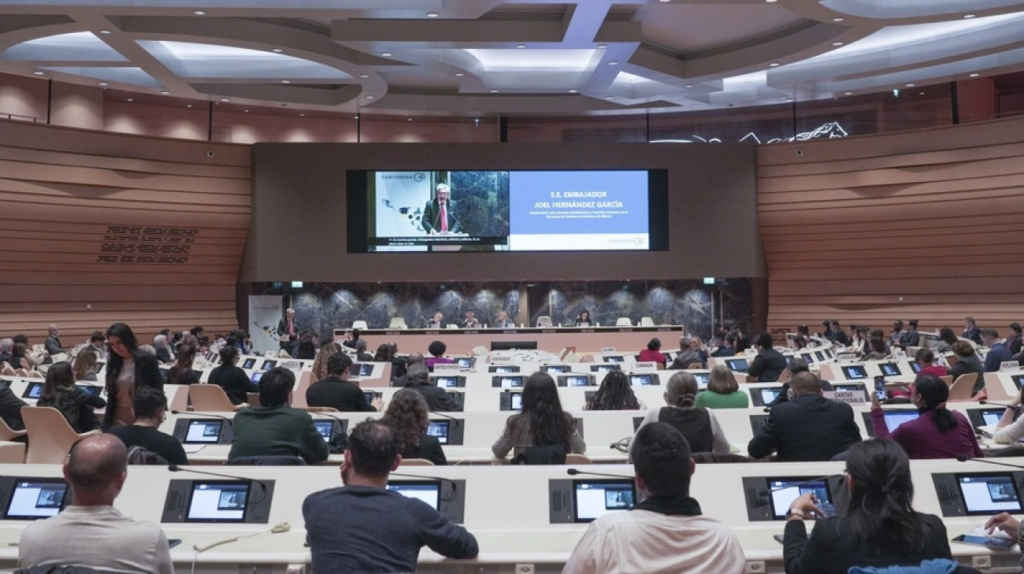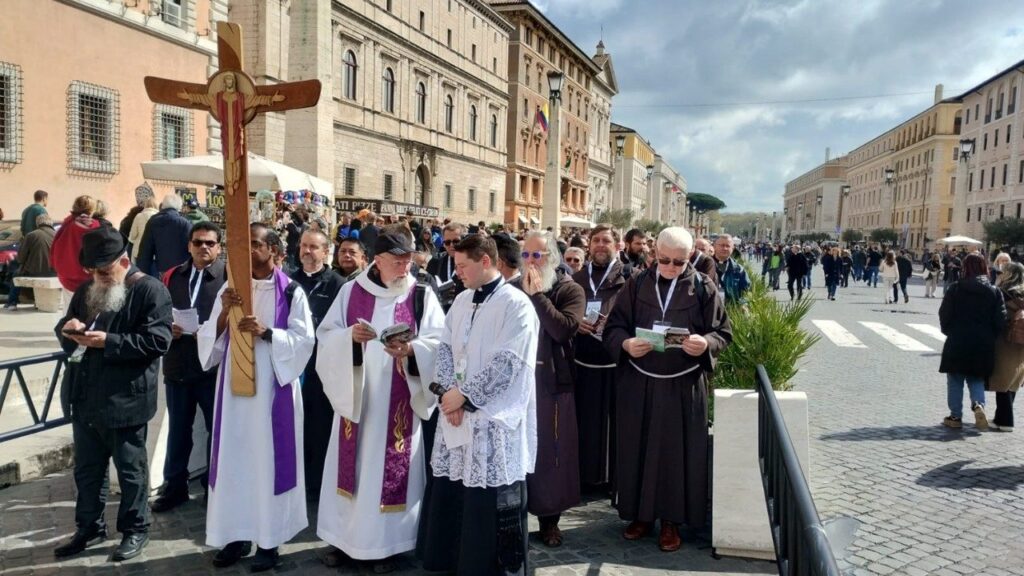The world will return to Ginevra to shelter and escape from war and violence
Message from the Pope to the participants to the “II Global Refugee Forum” [Geneva, December 13-15, 2023]

The Pope began his message by recording that the refugee crisis is one of the most serious in history. According to the United States, there are more than 82 million displaced people throughout the world, of which 26 million are refugees. The Pope expressed that this crisis is a sign of the profound desire and violence that exists in the world.
The Pope also defused the human impact of the refugee crisis. Refugees are people who have lost everything: their homes, their families and their means of life. The Pope asked the international community not to ignore the refugees and to offer them a new opportunity in life.
The Pope has proposed a series of measures to respond to the refugee crisis. First, the Pope called for solidarity and compassion. The Pope stressed that refugees are not a burden, but an opportunity for humanity. Next, the Pope asked the international community to work to find lasting solutions to the causes of the refugee crisis. In the third place, the Pope called to the countries to open their doors to the refugees.
We publish a continuation of the message that the Holy Father Francisco sent to the participants in the II “World Forum on Refugees”, which was released in Geneva from 13 to 15 December, and which was read by the Cardinal Secretary of the State Pietro Parolin:
Message of Pope
I have the honour of conveying to you the message that His Holiness Pope Francis has sent for this occasion:
[Distinguished Secretary-General]
Honourable High Commissioner,
Distinguished Co-host and Co-Conveners,
Dear Participants,
I extend my cordial greetings to all of you, and wish you every success in this important meeting, which allows us to pause and reflect on how far we have come four years after the first Global Refugee Forum.
Firstly, the fact that we are gathered here today shows our clear commitment to resolving the plight of refugees as a shared responsibility. This is a sign of hope which adds to the many positive signs that I encounter every day: countries and host communities that have kept their borders and their hearts open to welcome refugees; the outstretched hands of those who save lives at sea, many of whom offer solidarity in reception centres; (and) the eyes full of life and hope of migrants who want to change their lives and contribute to the societies to which they move; and each of us who still consider cooperation as the key solution to global problems.
Before discussing the challenges of refugees, we should never forget, that everyone should be free to choose whether or not to migrate. Everyone should have the opportunity to live a dignified life in their own country. [1]
Unfortunately, “our own days […] seem to be showing signs of a certain regression.” [2] Today, nearly 114 million people are forcibly displaced, many internally, due to conflicts, violence and persecution, including on the basis of religious beliefs, as well as the effects of climate change. These factors have grown increasingly complex, yet our responses have not adequately addressed these emerging and pressing challenges. As a result, we continue to mourn the countless lives lost on land and at sea while seeking protection or fleeing from a hopeless future.
Protecting and saving human lives must remain our utmost priority. Today, we are overwhelmed by an abundance of news and statistics, and we often forget that behind these numbers there are human faces, each with their own story and suffering. Each number represents one of our fellow brothers and sisters who are in need of help.
Therefore, the principle of safe and voluntary repatriation of those who are forced to flee must be strictly adhered to. No one should be repatriated to a country where they could face severe human rights violations or even death. Conversely, “we are all called to create communities that are ready and open to welcome, promote, accompany and integrate those who knock on our doors” [3].
To this end, we must acknowledge that being a refugee should not be a mere granting of a status, but a recognition of a full God-given human dignity. As members of the same human family, each individual deserves a place to call home. That means having food, access to healthcare and education, and a dignified work. However, it also means having a place where you are understood and included, loved and cared for, where you can participate and contribute. Refugees are persons with rights and duties, not just objects of assistance. They may not always be able to choose when to move, but when circumstances dictate it, they should not be denied a new start, where their talents and skills become a resource for the host communities. Only by including refugees as a part of the solution can they flourish as human beings and sow their seeds in the place where they live.
Recognizing the progress achieved and the work still to be done, we stand at a crucial moment, that is to choose “either the culture of humanity and fraternity, or the culture of indifference” [4]. The decision is vital, as “history is challenging us to make a leap of conscience in order to prevent the shipwreck of civilization.” [5] May this Global Forum set an example of a multilateralism that is relevant to our times.
It is thus my sincere hope that this Forum will work to revive both the “spirit” and the “vision” of the 1951 Refugee Convention, while at the same time seizing the opportunity to reaffirm the principles of fraternity, solidarity and non-refoulement through greater international cooperation and burden-sharing, thereby easing the pressure on refugee-hosting Countries.
Bearing in my mind and in my heart that we are all responsible for each other, I invoke God’s blessings upon all participants in the Second Global Refugee Forum, upon the States and Organisations present today, and upon all refugees and their families.
[1] Cf. Pope Francis, Message for the 109th World Day of Migrants and Refugees, 24 September 2023.
[2] Pope Francis, Fratelli Tutti, 11.
[3] Pope Francis, Angelus, 24 September 2023.
[4] Pope Francis, “Rencontres Méditerranéennes”, 22 September 2023.
Related

Pope Francis and Hope: Reflection on Jesus’ Encounter with Zacchaeus
Exaudi Staff
02 April, 2025
2 min

Technology with a Human Face: Pope Francis’ Call for Ethical and Caring Use
Exaudi Staff
01 April, 2025
1 min

Pope Francis Continues Optimistic Recovery and Maintains Work Pace
Exaudi Staff
01 April, 2025
2 min

The Pope to the Missionaries of Mercy: God became man to reveal to the world that he never abandons us!
Exaudi Staff
30 March, 2025
2 min
 (EN)
(EN)
 (ES)
(ES)
 (IT)
(IT)

